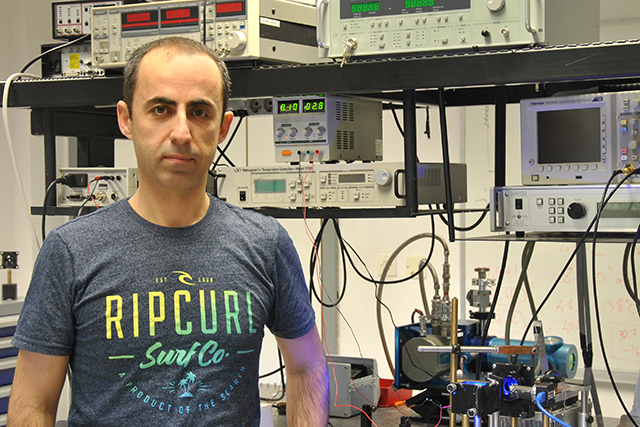Dr. Abdullah Demir, a research associate in the Department of Physics, has received funding under the European Commission’s Marie Sklowdowska-Curie Actions (MSCA) program, part of the EU Horizon 2020 initiative to promote research and innovation.
 The grant, an MSCA individual fellowship, will support Dr. Demir’s work in the field of laser miniaturization, an area that promises to enable significant improvements in the speed and efficiency of future communication and computing systems.
The grant, an MSCA individual fellowship, will support Dr. Demir’s work in the field of laser miniaturization, an area that promises to enable significant improvements in the speed and efficiency of future communication and computing systems.
His project will focus on the development of a nanolaser with ultra-low-threshold, energy-efficient and ultra-fast operation for future photonic interconnects and light sources. The project will also investigate the potential of nanolaser array architectures for applications in 3D sensing, augmented reality and LiDAR technologies.
Nanolaser devices, with their fundamentally new capabilities, hold special promise in a wide range of multidisciplinary areas such as optical communication, computer science, nanocavity physics, on-chip nanophotonics and biosensing.
The MSCA grants support research training and career development focused on innovation skills. The MSCA program promotes innovative research training as well as career and knowledge-exchange opportunities through cross-border and cross-sector mobility of researchers, preparing them for current and future societal challenges and enhancing the attractiveness of research centers in Europe and Turkey.